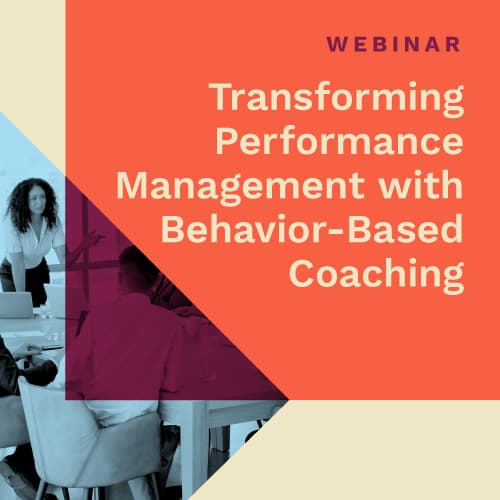The topic of career assessments for young adults is a personal topic for me, because it's how I found myself where I am today.
In this blog article, I'll share with you my struggle for finding the right career path along with all of the reasons that career assessments are useful tools for any college student.
How a Career Assessment Changed My Trajectory
When I was growing up, my parents encouraged me to follow my dreams – that I should explore whatever I wanted to study. I went to a high school with an intensive program in the arts, yet I had a nagging feeling that I didn't want to be a full-time artist for my career. I was surrounded by teachers and other students who had the same mentality as my parents – that I shouldn't worry about figuring out my career and instead simply focus on studying what interested me. I ended up majoring in philosophy in college, something that I don't regret at all, but it definitely wasn't a "career preparation" track.
When I was 19, at the end of my sophomore year in college, I started to worry. Two of the most popular paths forward for philosophy majors – going to law school or entering a graduate program for philosophy – weren't appealing to me. I was pretty sure that I didn't want to be an attorney or a philosophy professor. At the time, all of my friends were lining up internships and making plans for grad school... and I felt completely lost.
The many years of listening to the artsy, progressive adults in my life had left me feeling directionless in the face of graduation. I had ignored the ubiquitous notion that only STEM subjects are worth studying if you want to make a living in life, but rejecting the rigidly prescribed path to success didn't provide me with a clear alternative.
Fortunately, my university made it easy to get in touch with a career counselor on campus. Within a few minutes of speaking with her, we decided a career assessment would be hugely beneficial. It stated marketing/advertising as an ideal match for me (by the way, my Birkman reports show the same).
I had no exposure to business or marketing growing up – it was the antithesis of my artsy upbringing – so I had no idea what to expect. My knowledge of the field was limited to the episodes I had seen of Mad Men. Yet, I signed up for a course in marketing and applied for an internship at an advertising agency... and the rest is history.
Marketing isn't for everyone. But it is for me. I love what I do because I feel challenged every day at work, I get to work on projects that interest me, and I feel that I leverage my natural strengths. I feel extremely lucky that I've found my niche.
What Career Assessments Do
A good career assessment analyzes a person's interests and matches those interests with a variety of career paths. For example, my high interests in art, persuasion, and writing are aligned with the day-to-day tasks of marketer. In contrast, if my greatest interests were in art, working outdoors, and building things, I might be more satisfied as a landscape architect instead of working in an office.
A great career assessment analyzes not only interests, but also a person's typical behavior and compares them with the behavior of a typical person who is satisfied in that career role (hint: Birkman does that and more).
Once we've reached our late teen years, each of us has developed a relatively stable personality profile of behaviors, interests, and desires that may shift slightly but typically doesn't change significantly over time (except in rare cases of trauma, etc.). For most people, if they take a personality assessment at the end of high school and then again twenty years later, we wouldn't expect to see dramatically different results. For this reason, career tests are powerful tools for career planning, as the personality data that it is based on is predictive for decades of a person's career.
Why Career Assessments are More Relevant Now than Ever Before
With the cost of college continuing to outpace inflation, young generations are paying more now for educationthan any other generation in history. Underemployment and unemployment are major issues for millennials, and we've all heard the stereotypes of the millennial who lives in their parent's basement.
Getting college loans for an unused degree, missing out on income-making years, and being underemployed can make it impossible for young people to start saving for a down payment on a home or for retirement.
For every college student who feels as aimless as I did because career preparation wasn't something that they were pushed to consider in high school and college, there's an equal and opposite story. I know several fellow millennials whose parents were overbearing, forcing them to study business or STEM although it never felt right to them – and now that they realize that they hate what they do, they're having the same career crisis. Making investments in the wrong career path can be even more costly than stagnating and not picking a path.
I feel very lucky that I was encouraged to take a career questionnaire – it was the perfect time where I had enough exposure to college life and living independently, but it wasn't too close to graduation. I hate to think of the financial burden it would've been to have gone to law school (because it seemed like the natural path forward) and dropped out.
How to Get Started with Career Assessments
This is the easy part – personality-based career tests usually take less than an hour to complete and provide instant feedback. There are dozens (if not hundreds) of options available online, but not all are created equal.Make sure that you choose a tested, established scientifically-valid assessment that is used by universities and career coaches.
For best results in your career search, meet with a professional counselor (either an independent consultant or one at your high school or university) who is experienced in using assessments. Looking at the results of a questionnaire can provide interesting data to inform your decisions, but having conversations with an expert can dive deeper into the motivations that drive you. By discussing your past experiences, studies, and hobbies with a knowledgeable career counselor, you can gain more insights from your career report and understand your "must haves" in a work environment and position.

